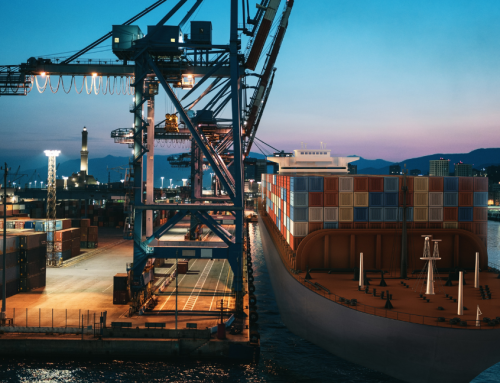The INCOTERMS 2010 highlight the notion of the selling price of goods at the international level. How do you set this price? What are the charges taken into account in the sale price? Who is responsible for the goods along the way?
Precisely, the INCOTERMS 2010 and 2020 respond to these concerns.
Unfortunately, these terms are optional. This optional nature in no way diminishes the value of these 2010 and 2020 INCOTERMS.
The CCI (International Chamber of Commerce) is the initiator of Incoterms. Indeed, it created the first version of the INCOTERMS in 1936. In addition, these terms facilitate trade between exporters and importers. Today, these INCOTERMS 2010, modified in 2020, solve three problems: transfer of charges, risks, and documents.
So what does INCOTERMS mean?
1 – DEFINITION OF THE WORD INCOTERMS
INCOTERMS stands for International Commercial Terms.
These INCOTERMS are international sales contracts between the exporter and importer.
INCOTERMS 2010 are still valid, in particular, the following maritime incoterms:
2 – THE MEANING OF THE INCOTERMS 2010
Let’s start this study with maritime incoterms. There are four: FAS, FOB, CFR, and CIF.
2.1.1 Incoterm FAS
FAS: Free Alongside Ship (named port of shipment)
The seller delivers when the goods are placed alongside the buyer’s vessel at the named port of shipment. This means that the buyer has to bear all costs and risks of loss or damage to the goods from that moment on. The FAS term requires the seller to clear the goods for export, which is a reversal from previous Incoterms versions that required the buyer to arrange for export clearance. However, if the parties wish the buyer to clear the goods for export, this should be made clear by adding explicit wording to this effect in the contract of sale. This term should be used only for non-containerized sea freight and inland waterway transport.
2.1.2 Incoterm FOB
FOB: Free on Board (named port of shipment)
Under FOB terms, the seller bears all costs and risks up to the point the goods are loaded onboard the vessel. The seller’s responsibility does not end at that point unless the goods are “appropriated to the contract” that is, they are “clearly set aside or otherwise identified as the contract goods”. Therefore, a FOB contract requires a seller to deliver goods on board a vessel that is to be designated by the buyer in a manner customary at the particular port. In this case, the seller must also arrange for export clearance. On the other hand, the buyer pays the cost of marine freight transportation, bill of lading fees, insurance, unloading, and transportation costs from the arrival port to the destination. Since Incoterms 1980 introduced the Incoterm FCA, FOB should only be used for non-containerized sea freight and inland waterway transport. However, FOB is commonly used incorrectly for all modes of transport, despite the contractual risks that this can introduce. In some common law countries, such as the U.S.A., FOB is not only connected with the carriage of goods by sea but also used for inland carriage aboard any “vessel, car, or other vehicle.
2.1.3 Incoterm CFR
CFR: Cost and Freight (named port of destination)
The seller pays for the carriage of the goods up to the named port of destination. The risk transfers to the buyer when the goods have been loaded onboard the ship in the country of export. The seller is responsible for origin costs, including export clearance and freight costs for carriage to the named port. The shipper is not responsible for delivery to the final destination from the port (generally the buyer’s facilities) or for buying insurance. If the buyer requires the seller to obtain insurance, the Incoterm CIF should be considered. CFR should only be used for non-containerized sea freight and inland waterway transport; for all other modes of transport, it should be replaced with CPT.
2.1.4 Incoterm CIF
CIF: Cost, Insurance, and Freight (named port of destination)
The term “cost, insurance, freight,” or “c.i.f.” predates the introduction of Incoterms. Under CIFT terms, the risk passes to the buyer on shipment. The sellers in a c.i.f. contract was entitled to payment of the price upon tender of the bill of lading and insurance policy. The purchasers’ intent to wait for satisfactory delivery and inspection was overruled. Note that “a c.i.f. contract is a contract for the sale of goods to be performed by the delivery of the documents”.
These incoterms apply to the maritime one; another article will help you understand the others, notably the polyvalent incoterms. For more information, please contact us.




